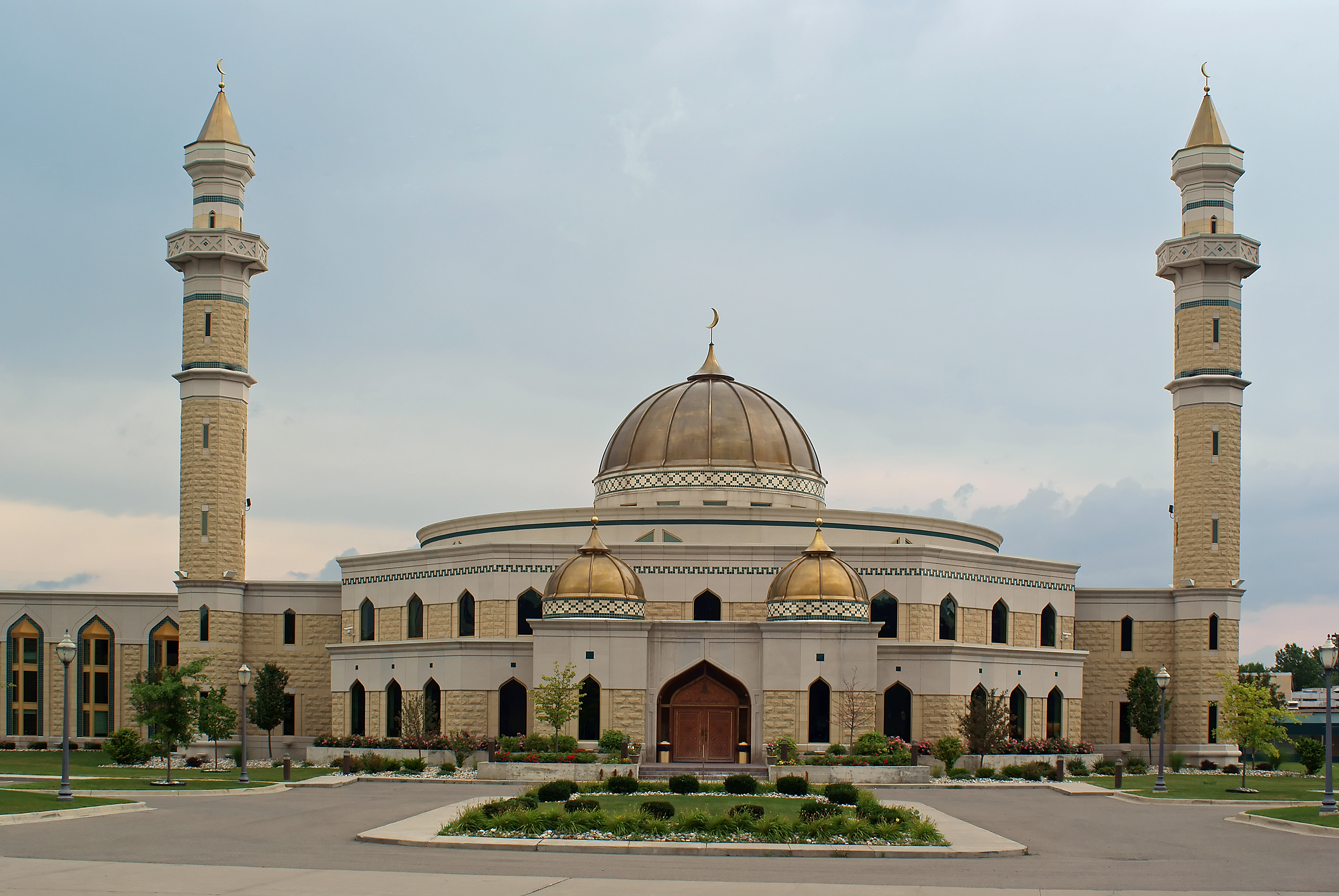Islam

To increase understanding of the faith, it would be helpful to first review some proper terminology.
Arabs are people from Arabic speaking countries in the Middle East and North Africa.
A Muslim is a follower of Islam, literally translating to "one who submits to God".
Islam is the religion itself.
Islamic is a non-human noun modifier.
These are the primary teachings of Islam. Islam is a Abrahamic tradition of the belief in one God. Muslims believe in God, angels, prophets, holy scriptures, an afterlife, and God's divine will. The foundation of their beliefs is the Qur'an, which is the word of God, and Sunnah, which covers the life of the prophet Muhammad. Noah, Adam and Eve, Jesus, Abraham, and many other religous figures from the Bible are all referenced in the Qur'an.
They practice their faith through the 5 pillars.- The first is the Shahada, which holds that "There is only one God and Muhammad is his prophet."
- The second is the Salat, which is prayer five times a day facing Mecca.
- The third pillar is the Zakat, alms giving or charity to people in need.
- Fourth is the Sawm, fasting during daylight hours in the month of Ramadan.
- Last is the Hajj, the pilgrimage to Mecca at least once a lifetime.
Islam Holy Days
The Holy Days follow a lunar calander, so every year, the dates differ.
Ramadan is a holy month during which Muslims fast in the daylight hours and feast at night. It occurs on the ninth month of the Islamic calander to remember when the Qu'ran was revealed.Muslims celebrate a number of holy days, but only two are set down by Islamic law. The first is Eid al-Fitr, which marks the end of the holy month of Ramadan. Muslims feast, dress up, decorate their homes, and give gifts. The second is Eid al-Adha, which marks the end of the Hajj pilgrimage to mecca. It commemorates Abraham's willingness to sacrifice his son, Issac, to God. This is celebrated with prayers at Mosques, social gatherings, and gift giving.
Islam Topics of Interest to Non-Muslims
There some aspects of the religion that are frequently covered by media.
First, there is the prophet Muhammad. Within the religious texts, there is no outright prohibition of images of Muhammad, but the worship of these
images is warned against. When extreamists become violent due to images of Muhammad, it has less to do with religion and
more to do with political motivation.
Next, there is the term infidels, which is seen as a word that threatens non-Muslims. However, Muslim scholars believe that
the Qur'an forbids forcingly imposing religion on non-Muslims, as the Qur'an states "there is no compulsion in religion".
Now, there is the topic of Jihad. The literal translation of the word is "striving" or "doing one's utmost". There
are two meaning of Jihad. One is the greater Jihad, the inward struggle of becoming a better person, and the lesser Jihad is a more external struggle.
The lesser Jihad is striving for justice in self-defense or against opressors. It is not a holy war, as it is supposed to protect civilians against
agressors. Scholars have compared it to the Christian concept of a just war.
Next, there is Sharia. Sharia is values, code of conduct, religious
commandments, comparable to our Ten Commandments. In America, Muslims believe that the law of the land supersedes Sharia.
They only follow Sharia in their personal life.
Last, it is important to understand the difference between Sunnis and Shias. They are two subgroups of Islam. Both hold the basic in core beliefs in the Qur'an, such as the five pillars. They are divided based on practice and leadership. The split goes back 1400 years, after Muhammad's death. There is tension, as Sunnis sometimes do not consider Shias true Muslims. In the U.S, 65% of Muslims identify as Sunni, 11% identify as Shia, and the other 24% identify as neither.
The information on this page was obtained from:BBC
Islamic Network Group